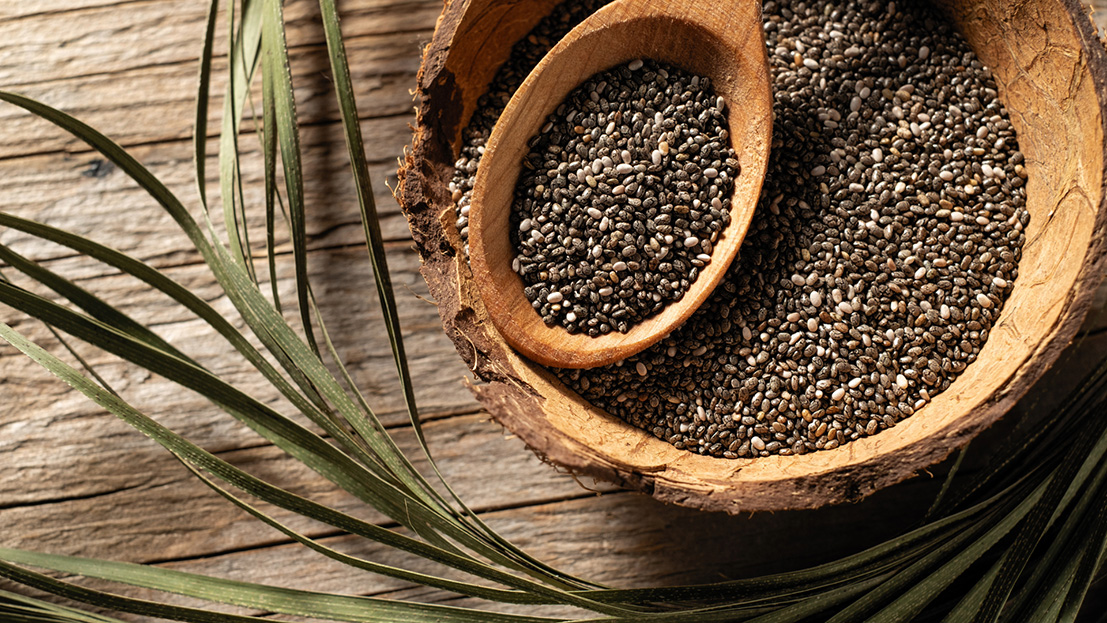
- Fun Fact: Chia seeds became popular in the United States in the 1980s and 1990s in the form of Chia Pets.
- Chia seeds are a member of the Lamiaceae (mint) family and are native to central and southern Mexico and Guatemala.
- Chia seeds can vary in color and include black, grey, black-spotted or white colored seeds.
- Chia seeds are naturally gluten free and grain free.
Nutrition
- 1 oz. of chia seeds are an excellent source of fiber, selenium, manganese, magnesium, phosphorus, zinc, and copper.
- Fiber assists in keeping your digestive system running smoothly by normalizing bowel movements.
- Selenium encourages immune and thyroid function and reproduction.
- Manganese supports carbohydrate, protein and cholesterol metabolism and wound healing.
- Magnesium regulates muscle and nerve function, blood sugar, and blood pressure control.
- Phosphorus stores energy and helps to activate hormones.
- Zinc assists in growth and development, reproduction, wound healing and immune function.
- Copper promotes bone, collagen and connective tissue formation.
How to Purchase, Prepare, and Store
- Purchase chia seeds in grocery stores or online.
- Store chia seeds in a glass container with a tight-fitting lid in a cool, dry location for up to 1-2 years.
- Eat whole or grind with a mortar and pestle or food processor.
- Chia seeds can expand to hold 10-12 times their dry weight in liquid and are great used as a thickener in gravies, soups, or puddings.
- Use as an egg replacer: 1 tbsp. ground chia mixed in 3 tbsp. warm water. Let sit 5-10 minutes, the mixture will gel and thicken. This can replace 1 egg in your baking recipes.
- Add to smoothies, yogurt, breakfast cereal, baking recipes such as breads and cookies, salads, grain dishes or soups. The possibilities are endless!
Nutrition Facts
1 oz. chia seeds (approximately 2 Tbsp.)
- Calories: 138
- Protein: 4.68 g
- Fat: 8.7 g
- Carbohydrate: 11.9 g
- Fiber: 9.7 g
- Calcium: 179 mg
- Magnesium: 95 mg
- Potassium: 115 mg
- Vitamin C: 0.4 mg
- Folate: 13.9 µg
- Vitamin A: 15.3 IU
- Vitamin K: 0.14 µg
Source: fdc.nal.usda.gov
Recipes
Request an Appointment
